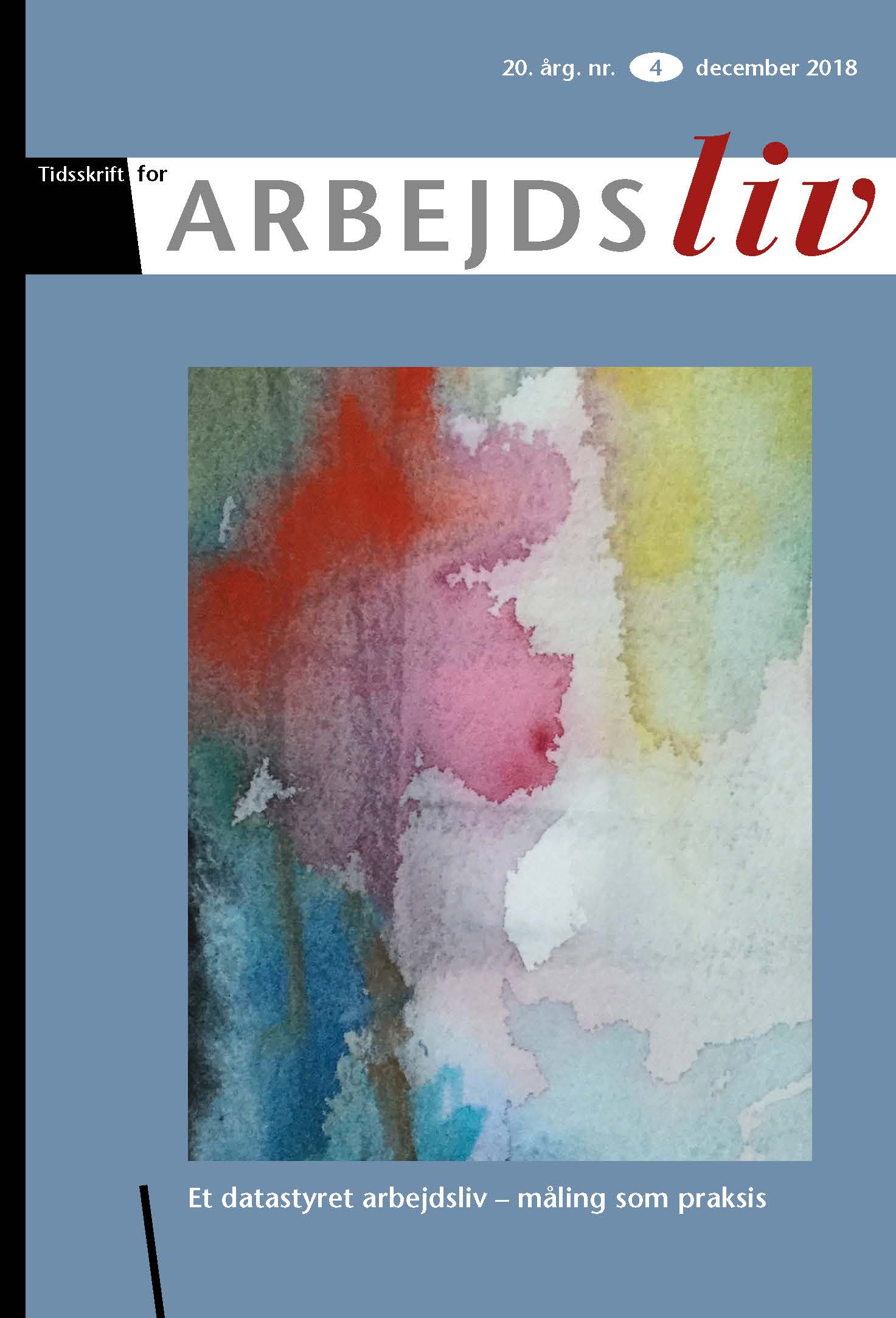”The struggle for good numbers”
Nursing staff’s work on electronic health record of patient vital signs
DOI:
https://doi.org/10.7146/tfa.v20i4.111591Abstract
In 2013 electronic data-registration was implemented in the Danish health system.This means that nursing staff are to register patients’ vital signs on computers that automatically calculates whether patients are in the process of developing critical illness, and defines after how many hours the measurement of vital signs are to be repeated. Existing medical research argue that the measurements of patient’s vital signs promotes identifi cation of morbidity, but it does not necessarily prevent mortality. The political argument is, however that electronic health measurements reinforces qualifi ed and cost-effective healthcare for patients. In consequence, data-registration has become an increasing focus for hospital managers i Denmark. This article presents an institutional ethnographical inquiry of nursing staffs electronic health measurements of patients’ vital signs in a Danish hospital. It analyzes the nursing staff’s interactions with electronic systems and points out how the introduction of these systems may lead to unintended consequences. In the empirical data for this article, the practice of producing health data, is verbalized by a nurse as: ”The struggle for good numbers”. In busy, overcrowded medical units “good numbers” indicate that patients are not critically ill, and that nursing staffs should not repeat measurements of patients’ scores until after 12 hours. The article show how individual nursing staff aims to construct good numbers in order to create favorable working conditions in their busy work life. The article thus discusses how the ambitions of cost-effective electronic-health monitoring of patients have implications for nursing staff’s work-lives and work-arounds regarding electronic health measurements of patient’s vital signs.
Downloads
Published
How to Cite
Issue
Section
License
Forfattere, der publicerer deres værker via dette tidsskrift, accepterer følgende vilkår:
- Forfattere bevarer deres ophavsret og giver tidsskriftet ret til første publicering, samtidigt med at værket ét år efter publiceringen er omfattet af en Creative Commons Attribution-licens, der giver andre ret til at dele værket med en anerkendelse af værkets forfatter og første publicering i nærværende tidsskrift.
- Forfattere kan indgå flere separate kontraktlige aftaler om ikke-eksklusiv distribution af tidsskriftets publicerede version af værket (f.eks. sende det til et institutionslager eller udgive det i en bog), med en anerkendelse af værkets første publicering i nærværende tidsskrift.
- Forfattere har ret til og opfordres til at publicere deres værker online (f.eks. i institutionslagre eller på deres websted) forud for og under manuskriptprocessen, da dette kan føre til produktive udvekslinger, samt tidligere og større citater fra publicerede værker (se The Effect of Open Access).





